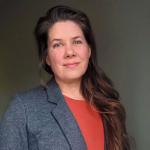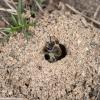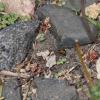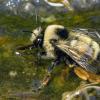Xerces is the largest invertebrate conservation organization in the world and has the largest pollinator conservation team of any nonprofit. Thanks to continued support from our donors and business partners, we have been able to rapidly expand our conservation portfolio by adding new staff, focusing on new geographic areas.
Our expanded efforts include hiring two new staff with a specific focus on protecting the hundreds of butterfly and bee species that inhabit deserts, forests, and grasslands across the western United States. Many of these species are currently in decline or are threatened by habitat loss, insecticides, and the effects of climate change.
We have also hired an Endangered Species Conservation Biologist based in South Carolina to develop and launch a new nationwide Firefly Atlas initiative, with an initial focus on the Mid-Atlantic, Southeast, and the Southwest. This Atlas will provide much needed information so we can make informed conservation decisions and work to aid land managers in their conservation efforts.
These new positions will help us increase our proactive conservation approach—using applied science, community science, outreach and education and policy and advocacy to address the big challenges invertebrates face. Each member of our organization plays a critical role in advancing invertebrate conservation, and we are pleased to introduce you to our newest staff.
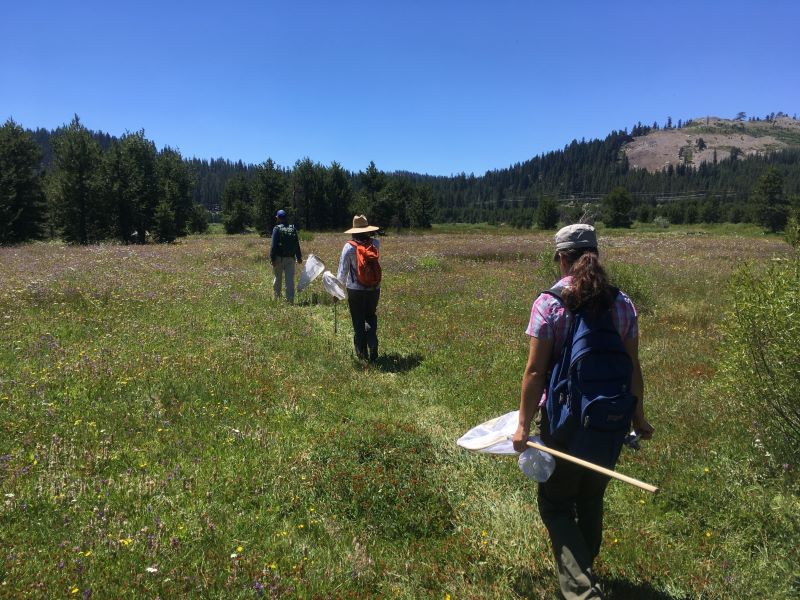
Xerces provides critical monitoring and research for endangered species. Here, Xerces staff cross a meadow on their way to conduct butterfly surveys (Photo: Kitty Bolte/ Xerces Society).
Aaron Anderson, Pesticide Program Specialist
Aaron works with the public and Xerces staff to reduce pesticide use in residential landscapes, including promoting alternative pest control measures and pollinator-friendly gardening practices. Prior to joining Xerces in 2022, he researched pollinator conservation in urban landscapes, restored habitat for several endangered butterfly species, worked in insect biocontrol, and was an AAAS Mass Media Fellow at the St. Louis Post-Dispatch, where he reported science and business stories.
Richard Joyce. Endangered Species Conservation Biologist
Specializing in fireflies, Richard coordinates many aspects of the Firefly Atlas project. He collaborates with researchers, land managers, and community scientists, and compiles and creates tools and resources that drive firefly conservation efforts. Before joining Xerces, Richard worked at conservation non-profits and agencies in Maine and South Carolina, including The Nature Conservancy, Maine Natural Areas Program, and Congaree National Park. He is based in Columbia, South Carolina.
Melissa Manuel, Donor Engagement Specialist
Melissa works to support Xerces donors. A “retired” young farmer, Melissa is the co-founder of Sherrett Food Forest, a regenerative agroforestry site in Portland, Oregon. She has worked with various conservation non-profits organizations over her career both in the field and in administration and development.
Lisa Merkhofer, Conservation Data and GIS Analyst
As Xerces’ first Conservation Data and GIS Analyst, Lisa works across all conservation programs to develop efficient data management systems and provide GIS support. She finds new ways to use spatial data to make discoveries, improve collaboration, and tell stories to further Xerxes' mission. Lisa has over a decade of experience working with geographical data, including with the National Park Service and the Colorado Natural Areas Program.
Livia Raulinaitis, Maine Pollinator & Beneficial Insect Conservation Planner, NRCS Partner Biologist
Livia works with agricultural producers and landowners throughout the state of Maine to enhance pollinator and beneficial insect conservation. By providing technical support to landowners, Livia seeks to foster an appreciation for the diversity of invertebrates in these systems and their value for pollination and pest management. Before joining Xerces, Livia coordinated research and restoration efforts across prairie, woodland, and wetland habitats on former agricultural and working lands in central Ohio.
Emily Spindler, Southwest Pesticide Program Specialist
As a pesticide specialist, Emily Spindler hopes to spread awareness of the pesticide paradigm, explore less toxic pest management options for southwestern working landscapes, and encourage their adoption in agricultural and urban areas. She has previously studied the risk of butterfly host plant contamination with neonicotinoid pesticides downslope of ag fields and toxicity to painted lady caterpillars.
Kass Urban-Mead, Pollinator Conservation Specialist, NRCS Partner Biologist
Kass provides technical assistance on pollinator conservation in the Mid-Atlantic and Northeast region. As part of this work, she assists with planning, designing, installing, and managing habitat for pollinators and other beneficial insects. Kass also works with staff and research partners to develop technical guidelines and provide training on pollinator conservation practices. Her graduate work in the Cornell Entomology Department characterized the wild bees active in early spring forests and forest canopies, and how the movement of bees between forests and orchards can support orchard pollination.
Further reading:
- Become a Xerces supporter: xerces.org/donate
- Find a Xerces staff member: xerces.org/staff
- Learn more about how we're growing in our member newsletter

